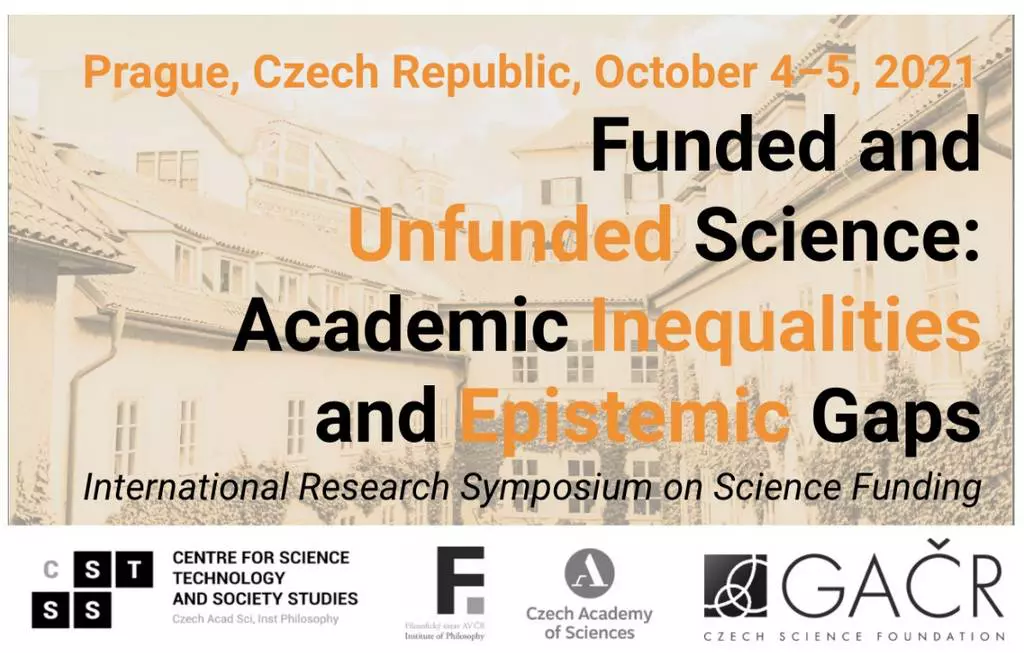Konference s názvem Funded and Unfunded Science: Academic Inequalities and Epistemic Gaps, která je věnovaná výzkumu financování vědy, proběhne v Praze ve dnech 4. a 5. října 2021 hybridní formou. Portál Vědavýzkum.cz je jejím mediálním partnerem.
Setkání věnované problematice financování vědy a výzkumu pořádá Center for Science Technology and Society Studies (CSTSS) při Filosofickém ústavu Akademie věd ČR s podporou Grantové agentury ČR.
Potvrzenými hlavními řečníky jsou Cassidy R. Sugimoto (The Georgia Institute of Technology), Grit Laudel (Technische Universität Berlin) a Peter van den Besselaar (Vrije Universiteit Amsterdam).
V případě zájmu o účast se nezapomeňte registrovat do 3. září 2021. Více informací o konferenci najdete zde.
Keynote lectures
Cassidy R. Sugimoto: Academic Inequalities and Epistemic Gaps
Persistent disparities exist in terms of the composition of the scientific workforce, with continued underrepresentation of women and minoritized populations. These disparities are perpetuated by several inequities, including preferential treatment by scientific gatekeepers (i.e., grant panels and peer reviews) of topics of dominant populations. Using bibliometric data, this presentation will review sociodemographic disparities and inequities in science and demonstrate the degree to which diversity in the scientific workforce translates into epistemic heterogeneity. The presentation will conclude with a discussion of the policy initiatives that can be undertaken to broaden representation in science and thereby improve the robustness of the scientific enterprise.
Grit Laudel: Funding and the Transition to Independent Research
In many research fields and national research systems, developing a longer-term research plan (an individual research programme) has become a prerequisite for an academic career because it signals the ability to conduct independent research and thus justifies being granted a position to do so. Individual research programmes are field-specific and vary in their epistemic properties, which in turn affect the time horizons and resources needed for developing and realising them. National research systems vary in the extent to which they accommodate these needs. In my talk I draw on two comparative studies of early and mid-career researchers in various research fields in the sciences and humanities and four research systems (Germany, UK, France, USA) in order to demonstrate how national funding systems affect the transition to independent research in different fields.
Peter van den Besselaar: What Influences Funding Success - Apart from Merit?
Success in grant applications makes the difference between funded and unfunded research, and as competition for grants is strong, grant success is a major source of inequalities in the science system - for example in career success. In this talk we will discuss the main factors that influence grant application success and distinguish between merit related factors that could be classified as legitimate sources of inequality, and other factors that reflect bias. We will discuss a variety of sources of inequality such as performance, the quality of the applicants’ networks, reputation and self-presentation, and clear sources of bias such as gender, institutional proximity, cognitive proximity. A large-scale case study will be used to determine which of these factors to indeed produce inequalities and bias – and where.
Zdroj: CSTSS
- Zdroj: CSTSS
- Zdroj: VědaVýzkum.cz
- Datum od: 4.10.2021
- Datum do: 5.10.2021

































